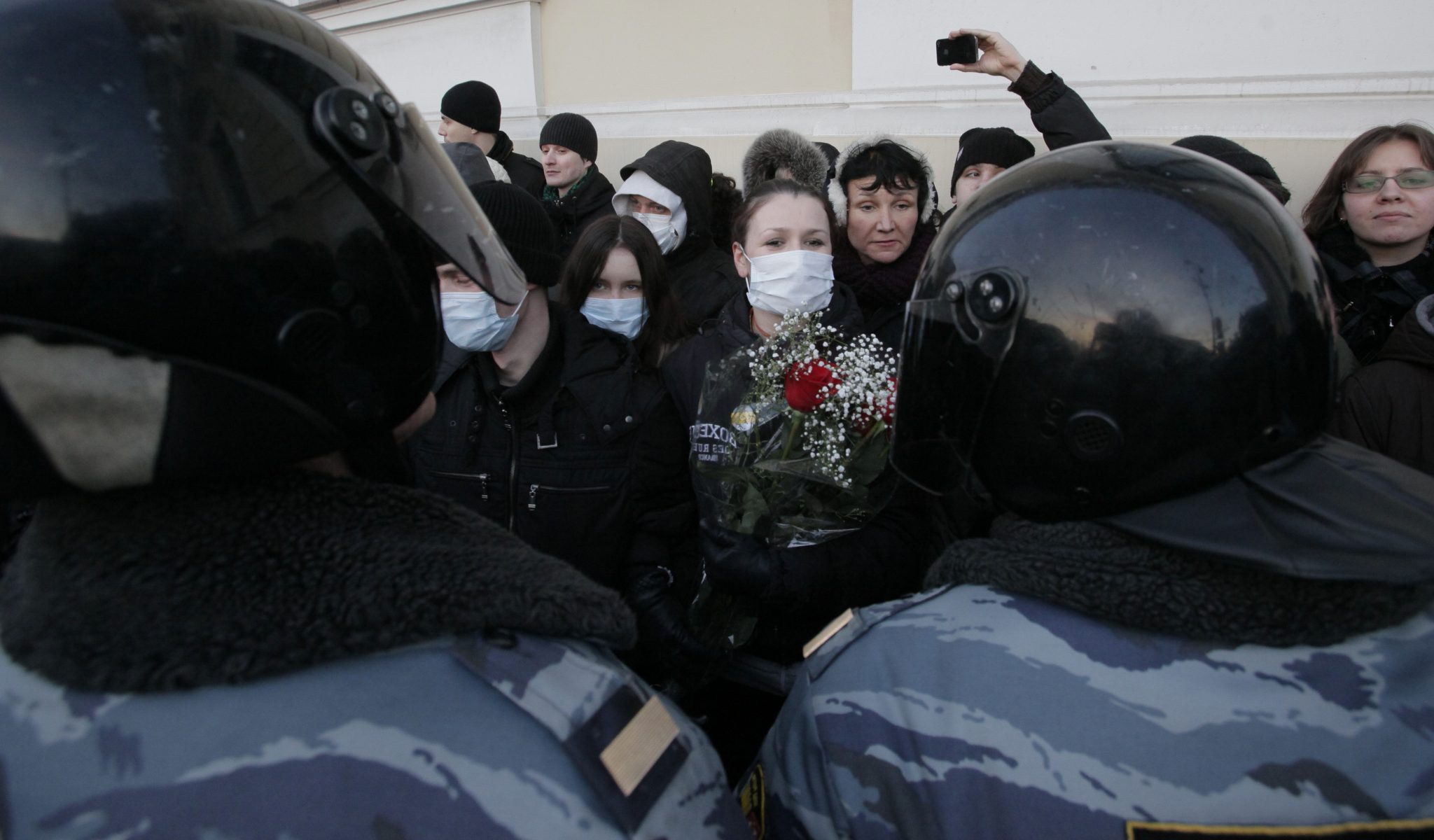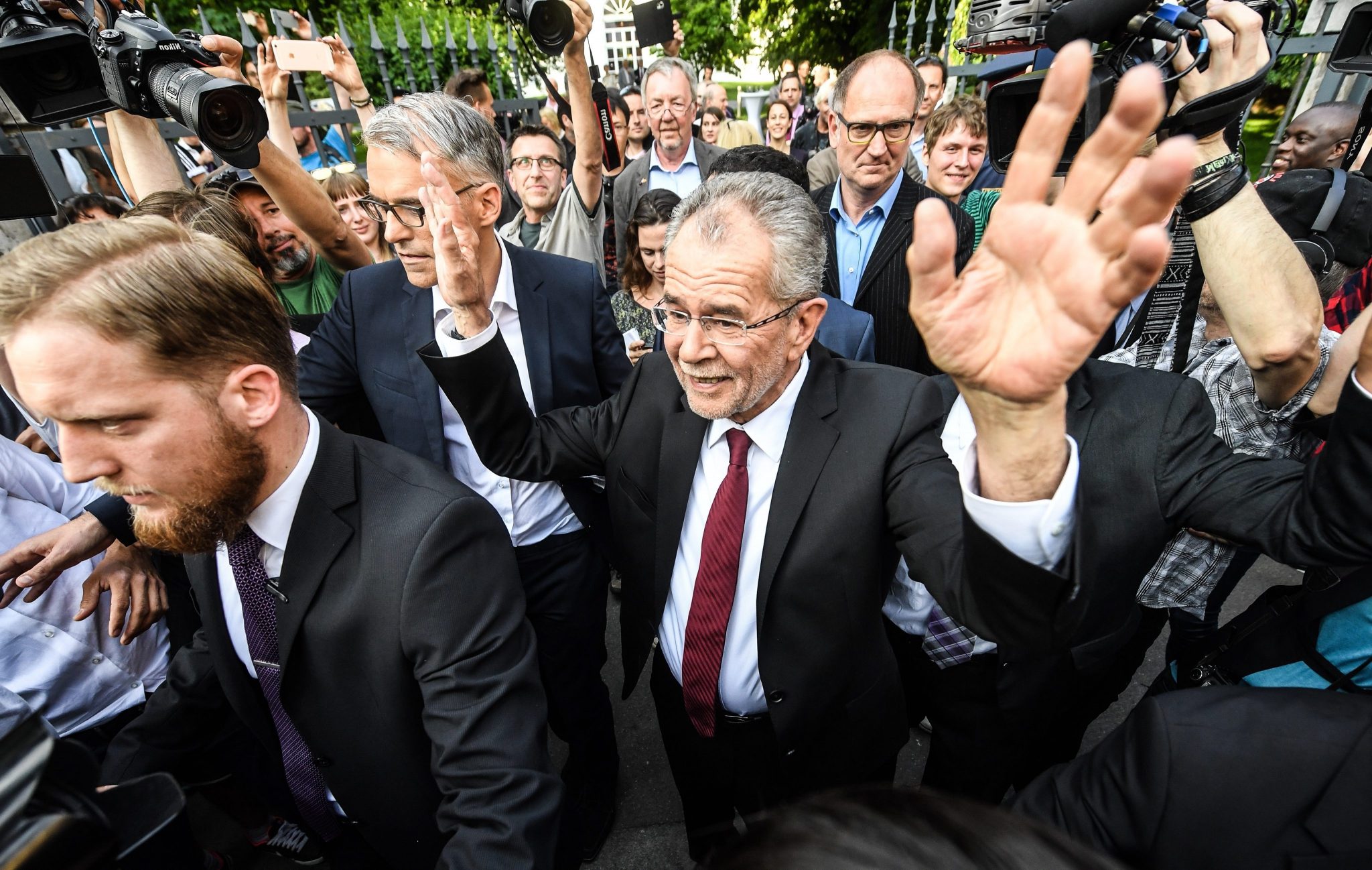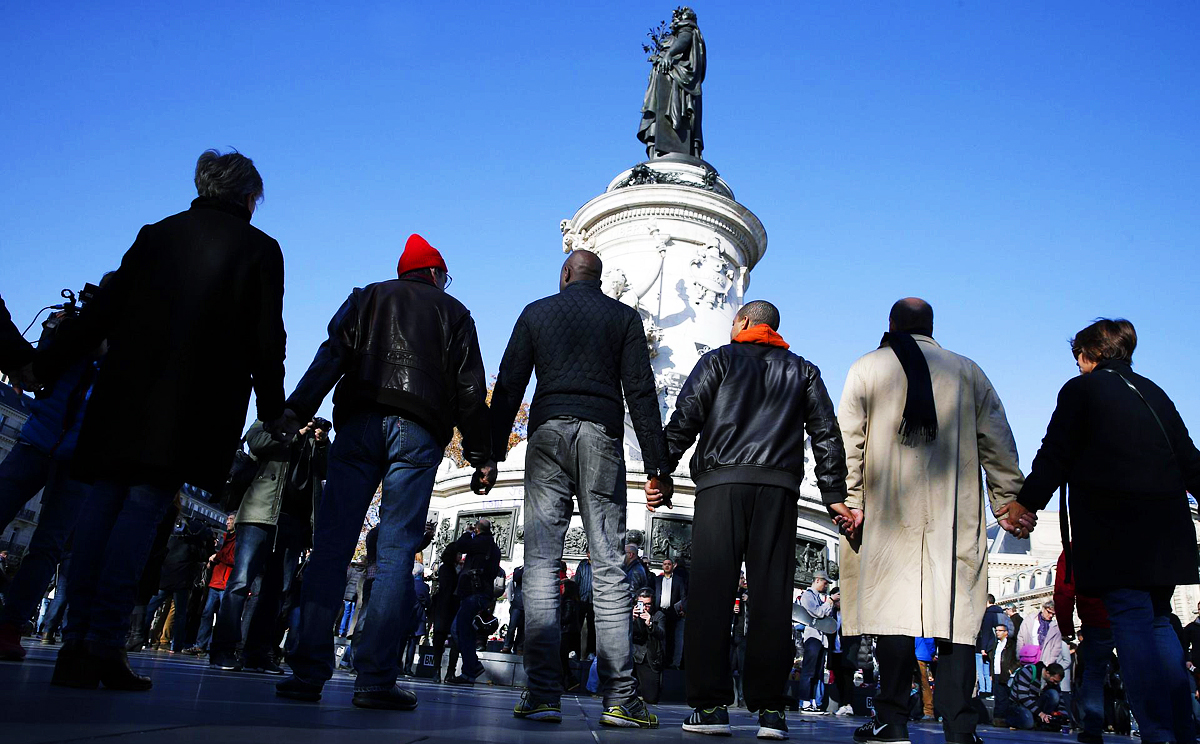
Russian NGOs are under pressure: They are hindered in their work with laws and checks by the authorities, paralyzed and driven to close down. External support is not only helpful, but vital.
In the last four years, more than thirty new laws and legislative amendments have been passed in Russia that restrict personal freedoms, according to human rights activists there. Ever since the color revolutions in Georgia and Ukraine in the first half of the 2000s, Russian leadership has feared a grassroots coup. The wave of protests in the winter of 2011-2012 seemed to confirm the almost paranoid fears of those in power. After his reelection in March 2012, President Vladimir Putin focused on systematically constricting and marginalizing organizations and individuals who were independent in their thoughts and actions. This ended the perceived thaw under Putin’s predecessor, Dmitry Medvedev.
The democratic façade has hidden the recent evolution of an authoritarian system that is national and patriotic in character. This system exhibits dictatorial traits when consolidating power seems absolutely necessary, then goes soft authoritarian when this is sufficient to control policy and society. Despite all the hardship, there continue to be niches available for some forms of independent media, for an isolated opposition, and for civil society organizations critical of the regime. But their scope of action is narrowing.
“Human rights a weapon of the West against Russia”
One recent symbol of this was the election of Tatyana Moskalkova, a major general of the Interior Ministry, as Russia’s human rights ombudsman in April 2016. The police themselves, of whom Moskalkova was a member, have been accused by critics of committing human rights violations including torture. In past years, the human rights ombudsman served as an intermediary between those at the bottom and those at the top, often successfully representing non-governmental organizations (NGOs) before the Russian leadership. Moskalkova, on the other hand, emphasized in her initial appearances as ombudsman that she understood human rights to be a weapon of the West against Russia and that her task was primarily to protect Russians living abroad. Human-rights activists in Moscow saw this as a final departure from universal human rights, which have often been reviled as a Western concept.
The apparatus of the state uses a diverse array of tactics to control society, nimbly deploying its resources. Disloyal NGOs are hindered by laws and checks by the authorities, paralyzed and driven to close down. At the same time, they see their funding sources, especially those from foreign countries, taken under state control or blocked off. State support replaces the lack of funding only partially, while at the same time creating dependencies and enforcing loyalty. Private sponsors within Russia are deterred by the threat of unpleasant consequences. State-subsidized organizations, GONGOs in various guises, build a bogus civil society in parallel. They take up the topics of independent NGOs, depoliticizing and diluting them. In extreme cases, state authorities pursue individual activists, even imprisoning them to send a threatening message to everyone.
The freedoms being restricted include:
Freedom of assembly
Russia’s demonstration law was passed in 2014 and has resulted in the criminal prosecution of over four violations a year. Violations frequently occur at one-person demonstrations, which do not require any prior registration. If a provocateur joins the one person demonstration, however, the two-person group counts as an unregistered demonstration and is subject to legal action. In December 2015, for the first time, a Russian court sentenced a protester to three years in a prison camp for several unauthorized demonstrations.
Freedom of the press
Freedom of the press has been systematically restricted over the past sixteen years: Entrepreneurs with close ties to the Kremlin have taken over media outlets, closing them or introducing new editorial policies. Journalists often censor themselves. Bloggers with more than three thousand daily readers must register as media outlets. After a scant two warnings, supervisory authorities can apply for the court to shutter a media outlet. In addition, the portion of foreign capital allowed in media enterprises has been limited to 20 percent. Lawmakers also have made the media and news services of Internet search engines liable for “extremist” statements in their publications. Already, reposting or liking an allegedly extremist text can lead to criminal penalties for Internet users.
Freedom of organization
The “foreign agent” law has stipulated since 2012 that “politically active” NGOs with foreign funding be put on a list of “foreign agents,” where this use of “foreign agent” is a defamatory term from the Soviet era. As of early July 2016, there were 135 organizations on the list, working primarily on environmental protection, human rights, gender equality, and migrant protection. Some of the organizations are closing down, since the state-conducted office checks of these “agents” and the resulting fines are making their work impossible. As far as the authorities are concerned, even donations from Russians who have ever received fees or wages from foreign organizations count as foreign funding.
A change in the law in June 2016 turned the screws of repression even tighter: in the future practically all NGOs, including those with social or charitable aims, can be declared “foreign agents.” Future “political activities” will include appeals to governmental authorities, organization of public meetings and debates, monitoring of elections, publication of opinion polls, and any other action that exerts influence on public officials.
The law on “undesirable organizations,” in turn, allows the Russian Prosecutor General’s Office, together with the Ministry of Justice and the Ministry of Foreign Affairs, to throw creditors of Russian NGOs out of the country. No legal resolution is necessary. So far, five U.S. foundations have been affected. The Venice Commission of the Council of Europe has stated that the law on “undesirable organizations” restricts human rights. But this criticism is not respected in Russia or is dismissed as a hostile act, especially now that the Russian Constitutional Court has the right to review decisions of the European Court of Human Rights with respect to their suitability for use in Russia. This calls into question the primacy that has so far been accorded to international law.
Russian Constitutional Court has the right to review decisions of the European Court of Human Rights
Nevertheless, civil society activity in Russia still has its bright spots, particularly the historical experience of dissident work that has taught many activists a great deal of flexibility and ingenuity. The human rights organization Memorial has an increasing number of volunteers. Many young people want to continue to be socially active. The challenge for them and for existing organizations is to find a new status and style of work that is less vulnerable to the state authorities.
Some former ”foreign agents” are re-forming as clubs or other groups without legal definitions. Some register in neighboring countries such as Lithuania and Latvia. Activists are turning to topics like urban planning and social assistance, which may seem to those in power to be above political suspicion while actually dealing with problems of social discrimination or citizen participation. At the same time, activists have begun discussions about how organizations can better identify themselves in relation to society, so as to make their concerns and work more understandable and offer some opposition to the state propaganda.
Most representatives from the Russian NGOs under pressure agree on one thing: support from the West is not only helpful, but vital. This is not just about monetary aid; the moral support alone and the exchange of experiences are of great importance under a Russian policy of partial external self-isolation and the internal marginalization of civil society organizations.
*This article originally appeared on Heinrich Boell Foundation



